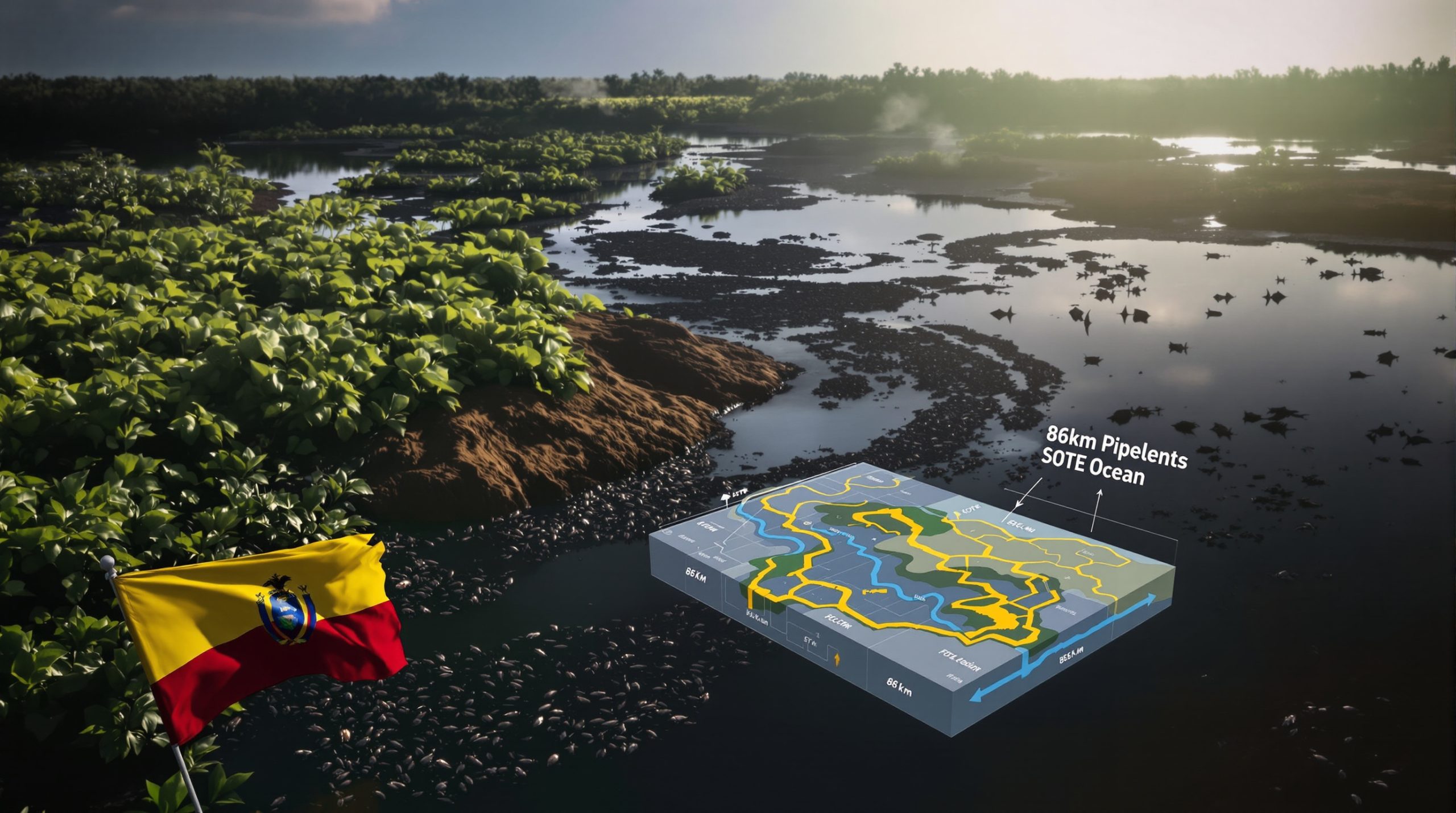GFG Alliance's Manganese Supply Crisis: Understanding Tasmania's $20M Loan Dispute
Liberty Bell Bay, Australia's only manganese alloy smelter, has become the center of a growing dispute between the Tasmanian government and its owner, GFG Alliance. At stake is a $20 million government loan intended to secure essential ore supplies and restart production at this strategically important industrial facility. Despite the arrival of the manganese ore, the smelter remains inactive, raising serious questions about GFG Alliance loan conditions manganese ore supply and the facility's long-term viability.
What Led to the Tasmanian Government's Loan to GFG Alliance?
The Strategic Importance of Liberty Bell Bay
Liberty Bell Bay represents a critical industrial asset in Tasmania's economic landscape. As Australia's only manganese alloy smelter, it plays a vital role in the nation's manufacturing capabilities while providing approximately 250 direct jobs and supporting an estimated 400 indirect positions throughout the region.
The facility, formerly known as TEMCO (Tasmanian Electro Metallurgical Company), produces manganese alloys that are essential components in steel manufacturing. These specialized materials enhance steel's durability and performance characteristics, making the smelter a strategic industrial asset with national significance.
Initial Operational Challenges
In May 2025, Liberty Bell Bay entered limited operations due to several converging challenges:
- Severe disruptions in manganese ore supply chains
- Significant market volatility in ferroalloy prices
- Intensifying competitive pressure from international producers
- Uncertainty regarding US market access amid shifting Trump tariffs impact
These factors created substantial operational hurdles for the facility, ultimately prompting GFG Alliance to seek government intervention to prevent a complete shutdown of the smelter and the subsequent loss of hundreds of jobs in northern Tasmania.
How Did the $20 Million Loan Agreement Work?
Loan Structure and Security Arrangements
Following recommendations from the Tasmanian Development Board, the state government provided a loan facility of up to $20 million in August 2025. The funding was specifically designated for:
- Securing a 23,000-tonne shipment of manganese ore
- Enabling the restart of smelting operations
- Stabilizing the facility's supply chain
According to Industry and Resources Minister Felix Ellis, the loan came with "clear, enforceable conditions" and included first-ranking security over Liberty Bell Bay's assets. This security arrangement provides the government with substantial protection in case of default, giving it priority claim over the smelter's physical assets.
Key Conditions and Timelines
The loan agreement contained several enforceable conditions that GFG Alliance was required to meet:
- Taking all necessary steps to resume full production by the end of September 2025
- Demonstrating meaningful progress toward operational sustainability
- Providing regular reporting on operational status and financial viability
- Utilizing the purchased manganese ore specifically for production at the Bell Bay facility
These conditions were designed to ensure the loan served its intended purpose of restarting operations and preserving jobs, while protecting taxpayer funds through clear performance requirements.
Why Is GFG Alliance Accused of Failing to Meet Loan Conditions?
The Ore Shipment Arrival and Inaction
While the manganese ore shipment arrived in early October 2025, GFG Alliance has not restarted full operations at the smelter as required by the loan agreement. A Liberty Bell Bay spokesperson confirmed that "the ore was being unloaded and preparatory work was underway," but full production has not resumed.
This delay prompted Industry and Resources Minister Felix Ellis to formally notify the company that they had failed to meet the loan conditions. Ellis stated: "The state holds security over the asset but our confidence in GFG's ability to meet its obligations has been severely undermined by its failure to restart operations."
GFG's Justification for Delayed Restart
GFG Alliance has presented several explanations for the production delay:
- Initial disruptions were attributed to "ongoing challenges with ore supply" caused by an unspecified cyclone
- More recently, the company cited a significant collapse in ferroalloy prices, claiming high carbon ferromanganese prices had fallen over 13% in the US market since June, with 9% occurring in just the last week of September
- Representatives stated they needed to "gain clarity on its supply position in the US market" before committing to a restart
The company indicated that a team would be meeting with US customers to assess market conditions before making further decisions about the smelter's operations, stating: "Given sudden changes in market conditions, it is now prudent for Liberty Bell Bay to first gain clarity on its supply position in the US market before commencing a restart of the smelter."
What Financial Issues Does GFG Alliance Face Beyond the Loan?
Liberty Bell Bay's Concerning Financial Position
Recent financial disclosures from a Whyalla Ports administrators' report paint a troubling picture of Liberty Bell Bay's financial viability:
- A capital deficiency of $121.4 million as of June 30, 2025
- Operations running at a net loss of $80.3 million
- A need for additional capital beyond the government loan to sustain operations
- A potential $200 million environmental rehabilitation liability if the smelter closes permanently
These financial challenges raise serious questions about the smelter's long-term viability under current management and market conditions.
Allegations of Asset Stripping
The Tasmanian government, based on analysis from financial consultancy Deloitte, has raised serious concerns about GFG's financial management of Liberty Bell Bay:
- Approximately $200 million has allegedly been moved out of Liberty Bell Bay to related GFG companies through inter-company loans
- A cash dividend was reportedly paid to the UK parent company in 2022 despite operational challenges
- Similar allegations have emerged regarding other GFG operations, including the Tahmoor colliery in New South Wales
The Deloitte analysis disputes GFG's claims that the smelter's issues are primarily due to ore supply problems or soft sales markets, instead pointing to financial management decisions that have weakened the operation's financial position.
How Would a Permanent Closure Impact Tasmania's Economy?
Direct Employment Effects
The most immediate impact of a permanent closure would be the loss of approximately 250 full-time jobs at the smelter. These positions represent skilled industrial employment that is increasingly rare in regional Australia and difficult to replace in Tasmania's economy.
Most of these workers come from the George Town area, a region already facing economic challenges. As noted in previous reporting from ABC News in May 2025, local residents expressed that "George Town struggles as it is" when the smelter first announced limited operations.
Supply Chain Disruptions
Beyond direct employment losses, a closure would create significant ripple effects throughout the regional economy:
- Beams Brothers quarry at Flowery Gully, which supplies limestone, dolomite, and iron ore to the smelter, would lose up to 40% of its business according to company head Donald Beams
- Local transportation and logistics providers would face reduced demand
- Service providers supporting the facility would experience decreased business
- The Bell Bay Advanced Manufacturing Zone would lose a key anchor tenant
Donald Beams told ABC Radio Hobart that he only learned the smelter would not be immediately restarting through ABC News, highlighting the communication challenges faced by businesses in the supply chain.
Long-term Regional Economic Implications
The broader economic implications of a permanent closure would extend beyond immediate job losses:
- Reduction in Tasmania's manufacturing capabilities and export potential
- Diminished industrial diversity in the state economy
- Significant challenges for regional economic development in northern Tasmania
- Potential activation of a $200 million environmental rehabilitation requirement
Bell Bay Advanced Manufacturing Zone CEO Susie Bower acknowledged the uncertainty, stating: "Can't say with any certainty whether that money will be returned. But this is what happens, again, in free trade, global markets."
What Market Factors Are Affecting the Manganese Industry?
Global Ferroalloy Price Volatility
The manganese alloy market has experienced significant turbulence throughout 2025:
- High carbon ferromanganese prices fell over 13% in the US market since June 2025
- A sharp 9% price drop occurred in just one week in late September/early October
- International competition has intensified, particularly from producers with lower operating costs
- Shifting industrial demand patterns have created uncertainty in key markets
These factors, combined with ongoing iron ore price trends have created challenging conditions for manganese alloy producers globally, with particular pressure on higher-cost operations like Liberty Bell Bay.
US Market Access Challenges
GFG Alliance has specifically highlighted concerns about US market conditions as a factor in delaying the smelter restart:
- Trade policies under the Trump administration, who returned to office in 2025, have created uncertainty about market access
- Price competition has intensified in the US ferroalloy sector
- Customer relationships require reassessment given changing market dynamics
- Liberty Bell Bay representatives prioritized US customer meetings before committing to production restart
When initially announcing limited operations in May 2025, the company specifically cited "Trump tariffs" as contributing to the decision, demonstrating the impact of US trade policy on the facility's operations.
What Options Does the Tasmanian Government Have?
Enforcement of Loan Conditions
With GFG Alliance failing to meet the agreed-upon conditions, the government has several potential enforcement mechanisms:
- Exercising its security rights over Liberty Bell Bay assets
- Seeking court intervention to enforce the loan terms
- Negotiating modified conditions with stricter oversight requirements
- Pursuing financial penalties for non-compliance
Industry and Resources Minister Felix Ellis has stated: "We will not rule in or out any options that protect Tasmanian workers and the future of the Bell Bay operation," leaving all possibilities on the table.
Alternative Support Strategies
Beyond loan enforcement, the government may consider alternative approaches:
- Facilitating discussions with potential alternative operators for the facility
- Developing transition plans for affected workers and communities if operations cannot be sustained
- Exploring market development initiatives to improve demand for manganese alloys
- Investigating additional financial support with stronger governance controls
The government's approach will likely balance the need to protect taxpayer funds with the imperative to preserve jobs and industrial capacity.
Policy Considerations
The government faces several competing priorities in its decision-making:
- Protecting the $20 million taxpayer investment in the loan
- Preserving strategically important industrial capabilities
- Supporting regional employment in northern Tasmania
- Maintaining investor confidence in the state
These considerations must be balanced against realistic assessments of the smelter's long-term viability under current market conditions and management.
What Is the Outlook for Liberty Bell Bay's Future?
Scenario Analysis
The smelter's future appears to depend on several key factors, with three primary scenarios emerging:
Scenario 1: Conditional Restart
- GFG secures favorable commitments from US customers
- Ferroalloy prices stabilize or recover from recent declines
- Additional capital is secured to support ongoing operations
- Government and GFG reach agreement on modified loan terms
Scenario 2: Ownership Transition
- GFG exits the operation due to financial constraints
- Government facilitates transfer to new operator with different business model
- Operations and workforce undergo restructuring
- Potential temporary shutdown during ownership transition
Scenario 3: Permanent Closure
- GFG determines operations are not commercially viable
- Phased shutdown of production with worker transition programs
- Environmental rehabilitation process begins
- Regional economic adjustment initiatives implemented
Critical Decision Factors
The most likely outcome will be determined by several critical factors:
- Results of GFG's meetings with US customers scheduled for mid-October 2025
- Global ferroalloy market trends in Q4 2025
- GFG's broader financial position and strategic priorities
- Government willingness to consider alternative support measures
Bell Bay Advanced Manufacturing Zone CEO Susie Bower acknowledged this uncertainty, noting that if US market opportunities don't materialize, Liberty Bell Bay "will need to pivot to look at other markets."
FAQs About the GFG Alliance Loan Dispute
What is manganese alloy used for?
Manganese alloys are essential ingredients in steel production. They improve hardness, strength, and wear resistance in steel products. These alloys are used in manufacturing everything from construction materials and automotive components to machinery and consumer products. The addition of manganese helps create steel with specific performance characteristics tailored to different applications.
Why did the Tasmanian government provide the loan?
The Tasmanian government provided the $20 million loan to achieve several objectives:
- Preserve approximately 650 direct and indirect jobs in northern Tasmania
- Maintain strategically important industrial capability in the state
- Prevent the economic and social impact of a sudden closure
- Support the broader Bell Bay Advanced Manufacturing Zone
The loan was recommended by the Tasmanian Development Board and received support from all sides of state politics as a measure to provide certainty to workers and the regional economy.
Could another company take over the smelter operations?
While transition to a different operator is theoretically possible, such a change would face significant challenges:
- The smelter's current financial position shows a capital deficiency of $121.4 million
- Market conditions remain challenging with declining ferroalloy prices
- Significant capital investment would be needed to modernize operations
- Environmental liabilities estimated at $200 million create additional risk
Any new operator would need to develop a substantially different business model to achieve profitability.
What happens to the manganese ore if production doesn't restart?
The 23,000-tonne shipment of manganese ore that arrived in early October 2025 remains an asset that could potentially be sold to other producers if Liberty Bell Bay doesn't restart operations. However, transportation costs and current market conditions would affect its resale value. The ore's disposition would likely be determined as part of any enforcement action or restructuring plan.
What environmental implications would arise from a permanent closure?
A permanent closure would trigger significant environmental remediation requirements estimated at approximately $200 million. This would involve:
- Decommissioning of industrial equipment and facilities
- Soil and groundwater remediation if contamination is present
- Removal of hazardous materials
- Site restoration and rehabilitation
These costs represent a substantial liability that would need to be addressed in any closure scenario, potentially affecting both GFG Alliance and government stakeholders.
The Global Context of Manganese Supply Chains
Strategic Importance of Manganese in Steel Production
Manganese remains a critical material for modern steel production, with no viable substitutes for its role in creating high-strength, corrosion-resistant alloys. Beyond the immediate economic implications for Tasmania, Liberty Bell Bay's situation reflects broader trends in global mineral supply chains:
- Increasing concentration of manganese ore production in countries like South Africa, Australia, and Brazil
- Growing strategic recognition of critical minerals reserve for industrial capability
- Vulnerability of extended supply chains to disruptions from natural disasters and geopolitical tensions
- Challenges facing higher-cost processing facilities in developed economies
The strategic importance of maintaining domestic processing capability extends beyond immediate economic considerations to questions of industrial sovereignty and supply chain resilience.
Reshoring Considerations in Critical Mineral Processing
The challenges facing Liberty Bell Bay occur against a backdrop of renewed global interest in reshoring critical industries:
- Increased policy focus on domestic processing capabilities in Australia, the US, and Europe
- Growing recognition of supply chain vulnerabilities highlighted by recent global disruptions
- Strategic competition with China in critical mineral processing
- Tension between economic rationalization and strategic industrial capability
These factors may influence government decision-making regarding the future of facilities like Liberty Bell Bay, potentially justifying support beyond strict commercial considerations. Furthermore, the situation highlights the need for industry innovation trends and industry consolidation trends to address the complex challenges facing mineral processing operations in developed economies.
Interested in Spotting the Next Big ASX Mineral Discovery?
Gain immediate access to significant mineral discovery notifications powered by Discovery Alert's proprietary Discovery IQ model, which transforms complex data into actionable investment insights. Understand why major discoveries can lead to remarkable returns by exploring Discovery Alert's dedicated discoveries page.




